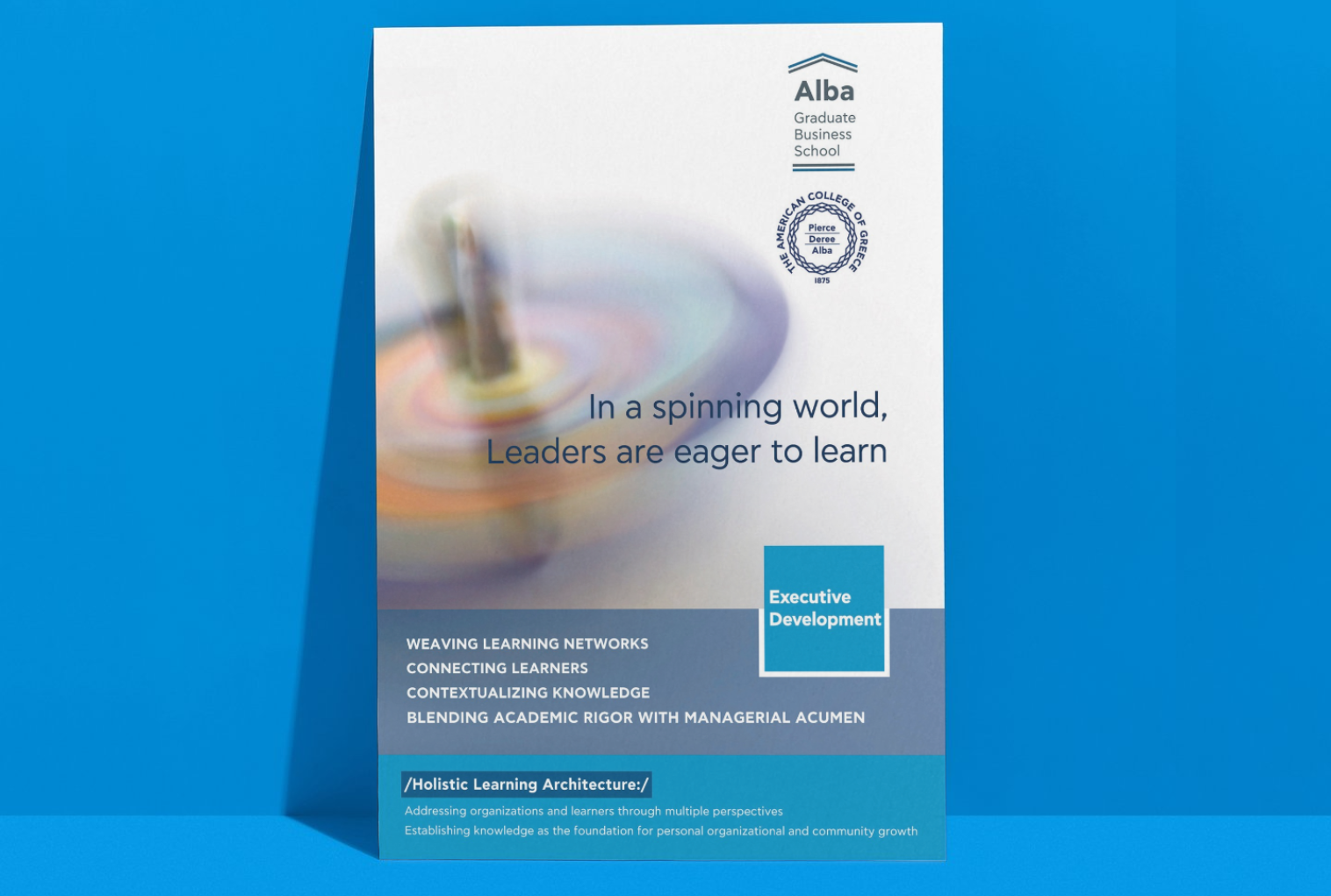The Future of Work in Greece – Preliminary results of the new Alba study

The first – preliminary – results of the new Alba Graduate Business School study on the Future of Work in Greece have been presented in the information event of the Eramsus+ EU project REMSKA (Remote Working Skills for All).
The future of work – simply put: a projection of how work, workers and the workplace will evolve in the years ahead – is a topic that keeps many managers and employees up at night. Macro forces, like technology or demography, set the tone but also unforeseen events take their share in shaping the future. It is commonly accepted that we have entered an era of high volatility and uncertainty: no one can say what tomorrow brings.
Within this environment, Alba is aiming at providing a solid basis for the discussion of the future of work in Greece by examining and reporting on the sentiment of the market: what do market agents themselves believe the most important issues for the future of work are? Eighty (80) individuals (company executives, professionals and students) have participated in the nine focus groups organized during the first phase of this research project. The project is already in its second phase, the personal interviews.
Participants seem to expect a flexible, dynamic, unstable, and demanding future working environment. Jobs will be more digital than physical and highly differentiated compared to current jobs. Paradox seems to be integral in the future of work: executives expect human skills to be more needed exactly due to the wide digitalization of the future work, while it is estimated that technological developments will lead to a decrease in working hours at the same time that performance demands will increase.
Commenting on the project Alba's Dean Dr. Kostas Axarloglou mentionted that “In a V.U.C.A. world relevance is the outmost challenge of a School. Relevance in learning, in knowledge creation and knowledge dissemination. The Alba ecosystem facilitates relevant learning through the co-creation of its departments and the active engagement and involvement of its stakeholders (students, alumni, corporate members, corporate-clients, etc.). The Alba ARIP study on the “Future of Work” provides insights on the future of work and supports the new strategic initiative οf Αlba Executive Development on “Learnability and Employability”. Learning that is interconnected with employability and thus it is sustainably relevant."
According to Marina Gryllaki, Director of Executive Development at Alba “In a rapidly changing and challenging environment, employability is connected not only with the ability to gain and maintain employment, but also with the commitment to pursue meaningful careers and purposeful professional journeys. At Alba Executive Development, we consider that learning and the willingness to constantly explore, acquire and share knowledge, is a key driver for personal and professional growth and success. In this context, we are launching the ‘Learnability and Employability Initiative’, that aspires to share insights on the hard skills, the horizontal competencies, the mindset and the values that will be shaping the future of learning and the future of work. The study on the Future of Work, that is led by our Applied Research department, will provide us a powerful tool to explore the trends and to collaborate with our stakeholders in order to propose learning journeys that will empower the human capital of the country with the knowledge and the attitude not merely to prepare for the future, but to effectively lead the future”
From his end Aristotelis Alexopoulos, Director of Applied Research & Innovation at Alba stated that “The discussion regarding the future of work evolves around two contrasting poles: fear and hope. In this era of rapid change and constant disruption, the only way to increase hope and decrease fear, for individuals and organizations, is to be prepared. As we cannot predict the future, we have to be prepared for whatever the future brings. Our intention is this study to provide the basis for a constructive discussion regarding the future of work in our country”





